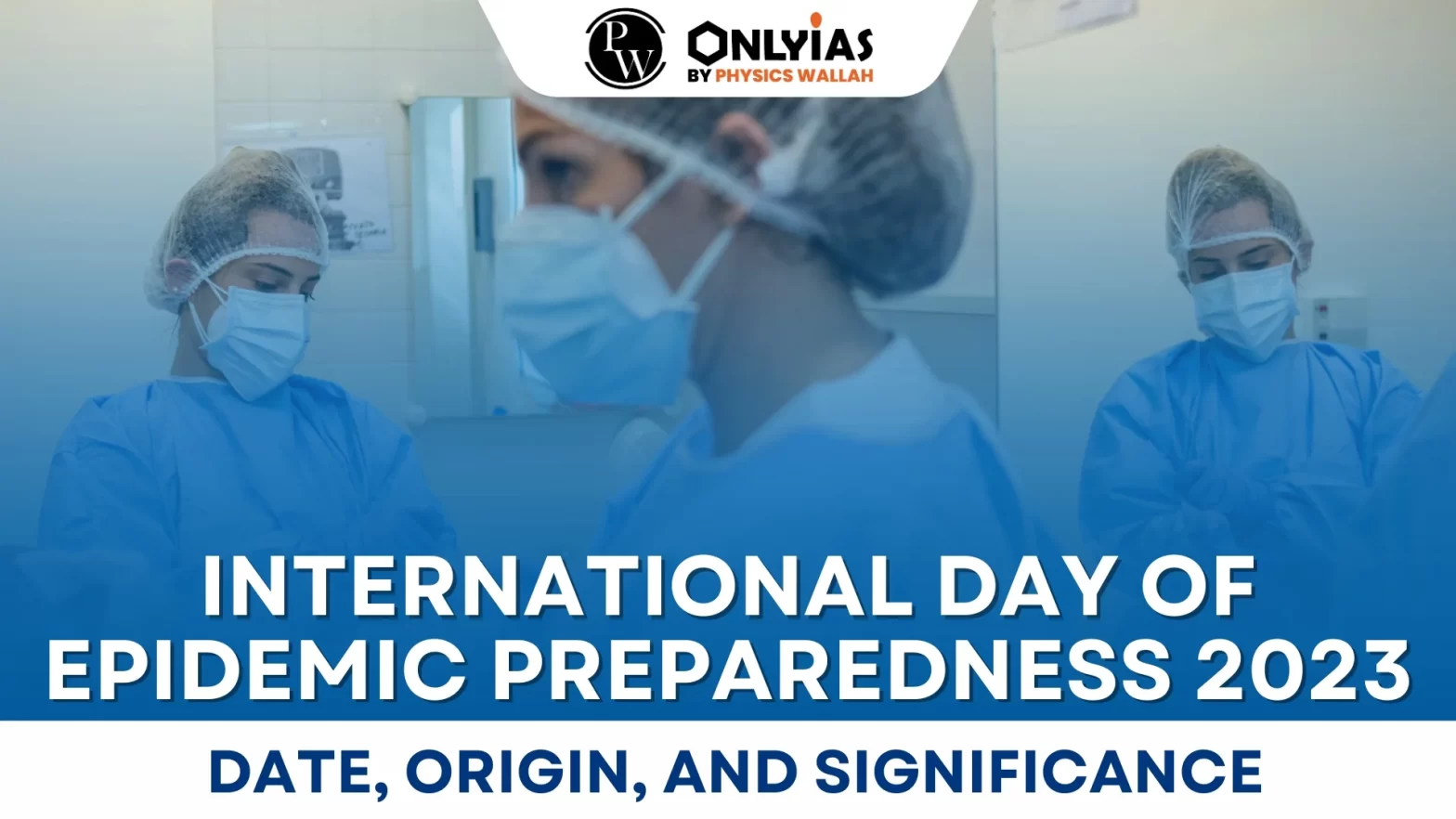![]() Priyanka
Priyanka
![]() December 26, 2023 04:41
December 26, 2023 04:41
![]() 1969
1969
![]() 0
0
The first-ever International Day of Epidemic Preparedness was held on 27 December 2020 to advocate the importance of the prevention of, preparedness for, and partnership against epidemics.

Context: The International Day of Epidemic Preparedness is marked worldwide on December 27.
Global pandemics like Covid-19 have shown how the health system across the world is vulnerable. It is imperative to have resilient and robust health systems, reaching those who are vulnerable or in vulnerable situations.
| Must Read | |
| NCERT Notes For UPSC | UPSC Daily Current Affairs |
| UPSC Blogs | UPSC Daily Editorials |
| Daily Current Affairs Quiz | Daily Main Answer Writing |
| UPSC Mains Previous Year Papers | UPSC Test Series 2024 |
<div class="new-fform">
</div>

Latest Comments